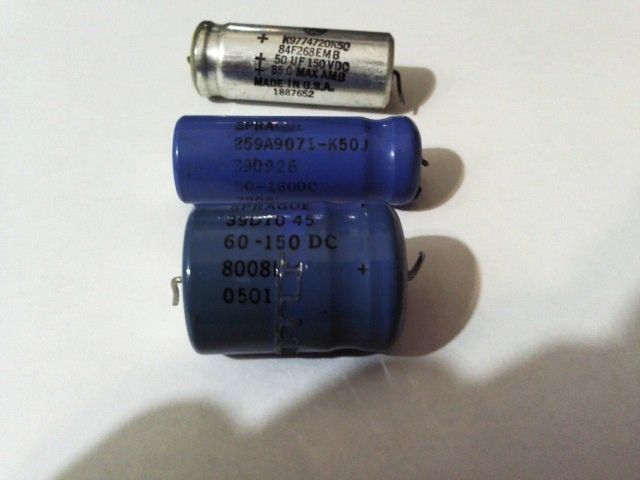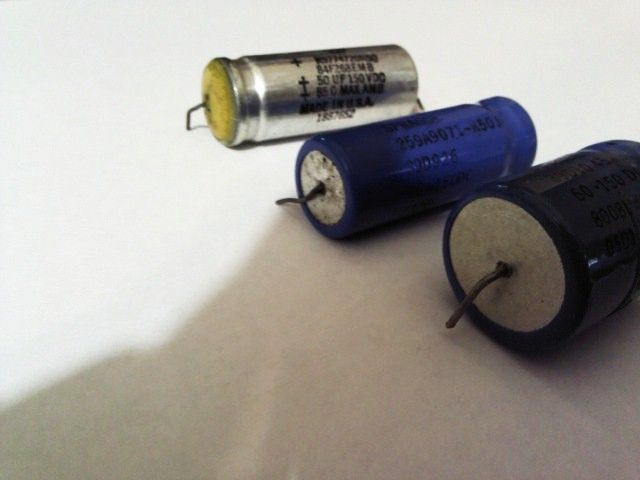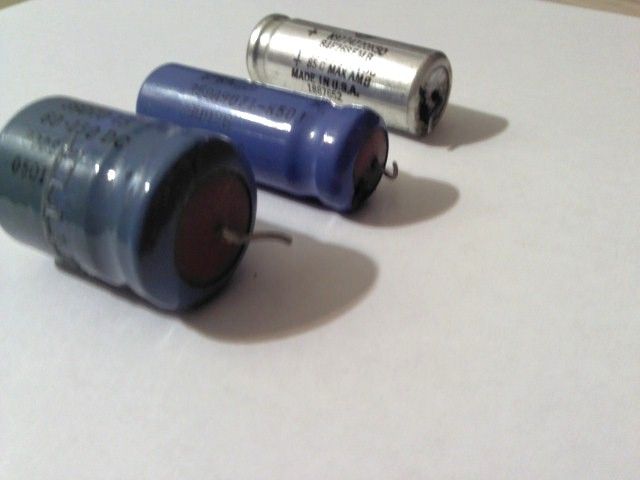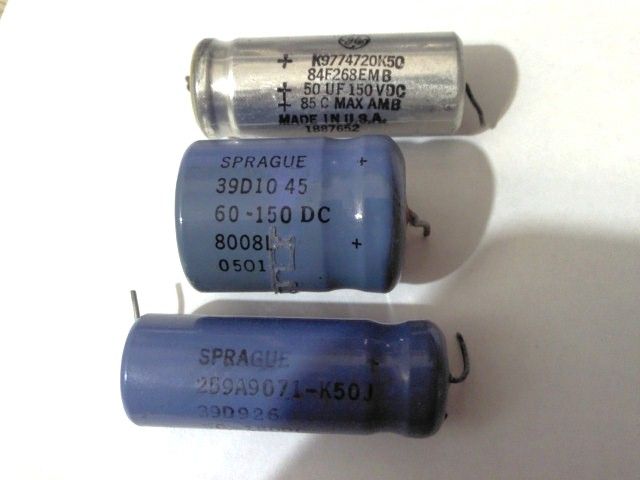ScrapStar - Just to help you as well as other members of SMF. Just as TantaluRecycling stated none are Tantalum capacitors, all are electrolytic capacitors. To add a little to that, all are aluminum axial electrolytic capacitors, perhaps the most common or easiest to distinguish of all the many types of capacitors. When looking for axial tantalum capacitors, start with green/green circuit boards. Almost all of the ones I have found, come from boards that are green on both sides. I have found them on high end thermostat boards made by Honeywell, (5 board 1 capacitor each), those boards were tan/green. Use a magnet on the axial capacitors you suspect or question "is it Tantalum?". You don't even need to take the time to remove them from the board, use a small magnet, place it on the anode side of capacitor (+ side). If it's Tantalum there will be a "strong magnetic pull". You can also just use a good pair of dykes or wire cutters on the axial metal can type capacitors. Try to crush the can portion of the capacitor, if it easily causes a dent in the capacitor it's a aluminum electrolytic capacitor. Be careful when doing this you don't want to puncture any can type capacitors, some can have a fluid "electrolyte" that is highly corrosive, harmful to the eyes and can cause skin irritations. Very hard to dent a metal Tantalum type capacitor and very easy to dent a aluminum one. Do NOT OPEN ANY TANTALUM METAL CAPACITORS, unless you take all precautions and know what to do with Sulfuric Acid! A lot of the metal Tantalum capacitors use sulfuric acid based electrolytes! On the "+" sign's a lot of aluminum capacitors will have them identifying the anode side of the capacitor. You need to then look at the circuit board, almost always only a "+" sign identify's A tantalum capacitor if the circuit board is marked. Make sure to check both sides of the board, most of the time it will be on same side of capacitor, I have seen them with only back side marked and even no marking at all. Honestly I find the metal can type of Tantalum capacitors the easiest to identify, it just takes practice. Good Hunting








 Register To Reply
Register To Reply



















Bookmarks